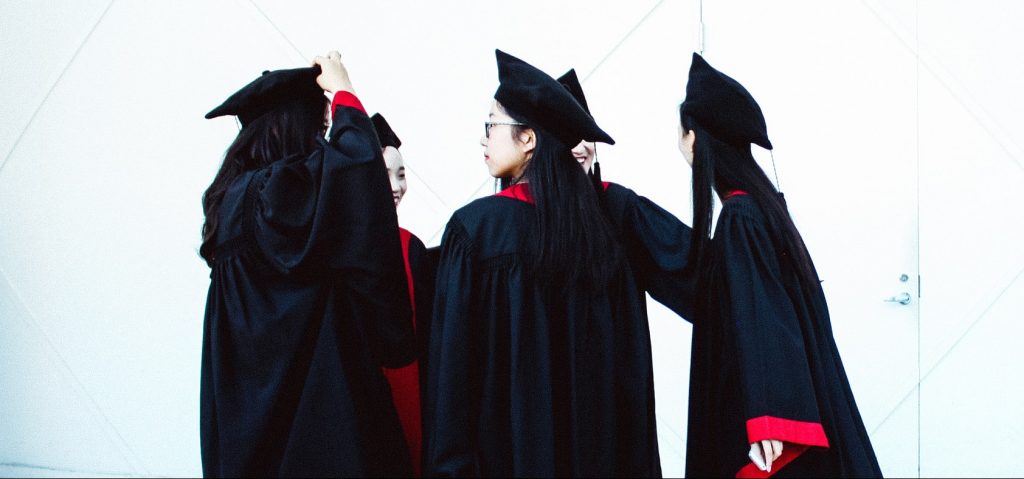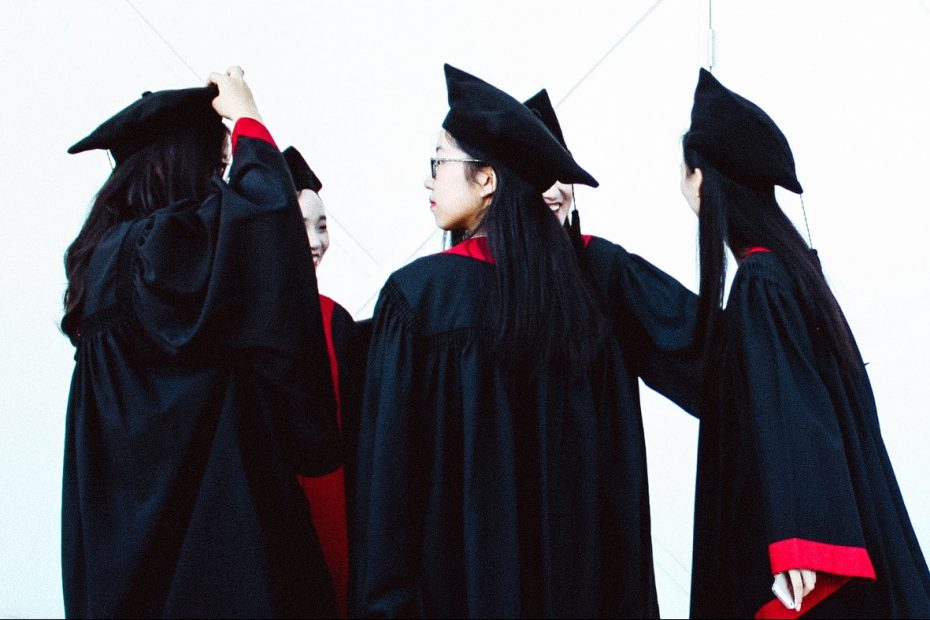South Korea, a famous study abroad study abroad destination for students from all over the world. It has outstanding colleges, welcoming locals, and a thriving culture. This is why an increasing number of students prefer to study in South Korea over other study abroad destinations. It has the fourth-biggest economy in Asia and the world’s 12th largest. The country boasts an excellent educational system, ranking seventh in the world in reading, math, and science. The country is home to the largest shipbuilders in the world as well as the world’s second-largest smartphone maker.
Numerous job chances will become available to you if you choose to study in South Korea. Employers around the world place a high value on graduates from Korean colleges. Additionally, you can be sure of having a secure future financially after graduation thanks to South Korea’s remarkably stable economy. This blog will look at all of the different aspects of studying in South Korea. We will look at the many institutions and colleges in South Korea, the visa requirements, post study opportunities as well as the cost of studying in South Korea and why it is so popular.

An Overview of Studying in South Korea
Studying in South Korea is a great opportunity for international students. It provides them with a chance to experience and learn about Asian culture, food, and society. South Korea provides students with an opportunity to improve their Korean language skills as well as experience the rigorous education system of the country. Studying in South Korea is not easy; it requires a lot of time, effort, and money. International students need to make sure that they have enough funds for living expenses, tuition fees, and other costs associated with studying abroad. They also need to prepare themselves for the different lifestyles that they will encounter when studying abroad in South Korea.
Why Study In South Korea?
Studying abroad is a great way to broaden your horizons, expand your knowledge and experience, and learn more about yourself.
To help you decide if South Korea is the right place for you, we’ve compiled a list of 9 reasons studying in South Korea may be the perfect fit.
- The Korean education system is one of the best in the world which makes it a highly competitive country, so studying here will give you an edge over other international students.
- South Korea has a culture that emphasises hard work and discipline which are key components for success in life and academics.
- South Korea offers many opportunities for study abroad students to explore the culture, history, and language. The official language in Korea is the Korean language. It is also one of the two official languages in China, along with Mandarin. There are over 75 million native speakers of Korean worldwide, mainly in South Korea and North Korea, as well as in several other countries throughout the world.
- It is also a great place to meet people from all over the world and make lifelong friends.
- It’s a safe, clean and beautiful country with diverse natural scenery and historical sites.
- The cost of living is low, which makes it easier for students to save money and enjoy themselves in Korea.
- You will have access to some of the best universities in the world, with many courses taught by English-speaking professors from America or Europe who have studied abroad themselves.
- Students are expected to be fluent in English by graduation
- The country has a high literacy rate with 99% of people over the age of 15 being able to read according to estimates from UNESCO’s Institute for Statistics.
South Korea Education System
South Korea has a merit-based system of education, where you get in based on your academic and physical achievements and is based on a strong foundation of competition. The country has invested heavily in creating a highly competitive system of education that has produced some of the best students in the world. South Korean schools are ranked among the top schools in Asia and globally, and their students have consistently topped international tests such as PISA, (TIMSS), and PIRLS. The South Korean government invests in its public school system by providing free education to all children aged 6-15 years old. This includes both primary and secondary school education, which is compulsory for all citizens.
At the end of secondary school, they take a college entrance exam, called the College Scholastic Aptitude Test (CSAT), which determines what colleges they are eligible for. Students who excel academically will often attend an elite university like Seoul National University or Yonsei University for undergraduate studies and then graduate with a Master’s degree from a top-ranked graduate school.
The South Korean education system also puts a lot of emphasis on extracurricular activities such as art, music, sports and clubs. This allows students to explore their interests and develop skills that may not be tested in school or college admission exams. A 12-year educational system is being operated in South Korea, with 6 years dedicated to primary education, 3 years to junior secondary education, and 3 years to senior secondary education. Students receive the General High School Certificate of Graduation, which allows them to enrol in university courses, after completing senior high school.
The three-tier degree structure of bachelor’s, master’s, and doctorate studies is used in South Korean higher education. Undergraduate levels also provide junior college diplomas and associate degrees.
Four years of full-time study are required for general bachelor’s degree programs like the Bachelor of Arts and Bachelor of Science. In specialized disciplines like medicine and dentistry, professional bachelor’s degrees require six years to finish.
Beyond a bachelor’s degree, master’s degree programs require two years of study, which includes a thesis.
Programs leading to a doctoral degree (PhD) may be offered alone or in conjunction with master’s degree programs. 36 credits of coursework or 60 credits when combined with a master’s degree are required of students. The courses must be finished in at least two years, and the entire PhD program must be completed in three or more years. Technical/vocational education can start in secondary school and continue through further and higher education, earning the Vocational High School Certificate of Graduation.
Normally, it takes two to three years of study to earn a junior college diploma or associate’s degree. Graduates could go on to get certified or pursue more education.
Some disciplines allow diploma or associate degree holders to obtain a bachelor’s degree in two years through a bridging program.
There are currently 9 main categories of institutes of higher learning:
- Universities and colleges
- Industrial colleges
- Junior colleges
- Distance learning universities
- Technical schools
- Miscellaneous institutions
- Online universities
- Graduate programs
How Much Does It Cost To Study In South Korea?
The cost of studying abroad varies depending on the country and the type of program. The cost of studying in South Korea is significantly cheaper than living in the United States. This is because most of your living expenses are taken care of by your university, such as room and board, food, tuition fees, etc. There are also scholarships available for international students to help cover some expenses like travel costs or textbooks. The average cost of studying in South Korea is around $1,500-$2,000 per semester.

Best Institutions in South Korea
Since South Korea is the 4th largest exporter of higher education globally, it means that it is a great market for international students. The country benefits from a large number of universities and colleges.Since 1992, all 4-year colleges and universities’ educational programs have been evaluated and accredited by the Korean Council for University Education (KCUE), which also conducts assessments at the departmental and institutional levels.
Some of the leading institutions include:
1. Korea University
Korea Institution is a private research university in the South Korean capital of Seoul. Missionary James Scarth Gale founded Kyung Sung Public School in 1905. Korea University features 23 undergraduate colleges and 11 graduate institutions, including the Colleges of Law, Medicine, and Business Administration, as well as the Graduate School of International Studies. Former President Park Geun-Hye and Samsung Electronics Chairman Lee Kun-hee are among the university’s most renowned alumni.
2. Seoul National University
Seoul National University is a research-oriented university that offers students research and education in the natural sciences and engineering. The school was created in 1946 as Korea’s first national university and has since become one of South Korea’s most distinguished universities. Seoul National University is widely regarded as one of the best universities in Asia, not only in South Korea. Former President Kim Dae-Jung, Nobel Laureate Lee Yuan, and Hyundai Motor Company founder Chung Ju-Yung are all graduates of Seoul National University.
3. Yonsei University
Yonsei Institution (YU), previously known as the Yonsei University of South Korea, is a private research university in Seoul, South Korea. The school was established in 1885, making it one of Korea’s oldest institutes of higher learning. Yonsei University, along with Seoul National University, Korea University, and the Korea Advanced Institute of Science and Technology, is regarded as one of South Korea’s most prominent and selective universities. It is regarded as South Korea’s most selective university, with only 3% of applicants admitted to its undergraduate program.
4. Kyungpook National University
Kyungpook National Institution is a South Korean public research university in Daegu. Kyungpook Provincial College of Education was founded in 1946. Kyungpook National University provides a variety of undergraduate and postgraduate degree programs. It consists of 20 schools and 68 sections. The institution also has a graduate school that offers master’s degrees in a variety of subjects of study. For talented students who want to pursue a college degree while still in high school, the institution has an affiliated high school.
5. Pusan National University
Pusan National Institution is a public research university in the South Korean city of Busan. It was founded on September 1, 1946, as South Korea’s first national university. (QS) and Times Higher Education World University Rankings has named the university one of the top universities in Asia. Pusan National University is also one of Korea’s most prestigious universities, with a reputation for academic quality and an international viewpoint. Undergraduate, graduate and doctorate degrees are available in a variety of fields, including engineering, humanities, natural sciences, social sciences, medicine, and law.
What Is The Best Course To Study In Korea?
There is no doubt that studying in Korea is one of the best ways to accelerate your career in Korea. However, there are so many courses to study and it is not easy to pick the best one. To help you choose the best course to study in Korea, we have prepared a list of the most popular courses to study in Korea. You can choose the best course that matches you and your goals.
- Arts & Literature
- Business Studies
- Economics
- Engineering & Natural Sciences
- Management studies
- Social Sciences
Financial Aids; Scholarships
If you are looking for scholarships to study in South Korea, you have to have a good grade in your high school. If you are in high school, you must keep your grades and your participation in school activities high. You must study hard in your classes and try to maintain your GPA to a high standard. This is so that you can be eligible to take the college entrance exam in South Korea. Once you take the exam, you will be eligible to get your GPA scale. Once you get it, you can get scholarships in South Korea because you will have to meet certain conditions through your grades.
As an international student one of the most common ways to get scholarships in South Korea as an international student is by contacting the embassy or Consulate of South Korea in your country. You also need to know that scholarships in South Korea are offered by many different organizations. They offer scholarships to those with good grades or those that have a good personality and or those that have great talent in a certain area.
Student Visa Requirements For South Korea
The D-2 (study) visa for universities and the D-4 visa for Korean language courses are the two different types of student visas available for Korea.
D-4 student visa
The D-4 student visa is for people who desire to take language classes while studying abroad for a while in South Korea. Korean colleges sponsor D-4 visas for studies lasting at least six months. This visa is not funded by private institutions, in contrast to other countries. This indicates that enrolling in a Korean language course offered by a university is the only way to obtain the admission letter you need for the visa application.
The visa is valid for language programs lasting between six months and two years. The most crucial factors are your continued attendance in the class, your passing grade on the final exam, and your prompt payment of the tuition fee. Even if you continue to work in Korea, the Korean immigration office will revoke your student visa if you stop going to class.
Study Visa(D2)
Prior to the start of the semester at Korea University, all international students pursuing degrees are required to apply for a student visa (D-2).
The 3-month D-2 visa is only issued for a single entrance. This means that the visa will expire if you don’t enter Korea within three months after receiving it. The length of stay would begin to accrue upon arrival into Korea. The length of stay will strictly correspond to the length of the study as stated on the admittance certificate (For instance, if the length of the study is four months, the length of the stay that will be granted will also be four months.) The Embassy would be unable to grant you additional days to meet your unique demands.
You must apply for an Alien Registration Card (ARC) at a local immigration office in Korea within 90 days after arriving if your program is longer than 90 days. The ARC needs to be given back to the immigration office or immigration officers at the airport of departure once you’ve finished your study. If you don’t, you’ll get fined. The Student Visa Application process can be very confusing and time-consuming. The best way to get started is to have a basic understanding of what steps you will need to take.
Below is a list of documents that you will need to gather and complete before your visa interview date:
- Passport/travel document (valid for at least 6 months beyond the date of arrival).
- Two (2) recent passport-sized photographs of University or student ID certificate(s) showing enrolment.
- Proof of financial support (tuition fee and living expenses for at least one year).
- A copy of your acceptance letter for the program.
- A certificate of health insurance that provides coverage for the entire stay.
- A letter of accommodation from your sponsor (school).
- A police certificate from your local police department.
Once you have all these documents make your way to the embassy or Consulate of South Korea in your country and register for your student visa.

Opportunities While Studying In South Korea
Can I work while I study in South Korea?
Yes, you can! After the initial six months in Korea, those with a D-4 Korean student visa are eligible to begin working part-time. The typical work week for a language student might be up to 20 hours, but increasingly, schools have become more rigid and demanding. Some schools need a high level of attendance in class with a minimum of 90% and a level of Korean equivalent to at least a TOPIK 2 certificate in order to be eligible for part-time employment. If not, a maximum of 10 hours per week may be worked.
Post Study Opportunities in South Korea
If you are a student who has completed your studies and are looking for opportunities to continue your education, regardless of wherever you are form or where you studied in South Korea, you can easily stay back and work because South Korea is safe and has a stable economy. In addition, the cost of living in South Korea is can be easily coped with unlike many Asian countries. There are various options for post-study work in South Korea. The major ones are:
- Teaching English in Korea.
- Working at a Korean company.
- Studying at a Korean University to earn an MBA or PhD degree.
- Working as a foreign correspondent for the Korean media (ex. KBS, (MBC), (YTN) etc.)
- Working as an international lawyer in Seoul, South Korea.
Final Thoughts on Studying In South Korea
Global recognition and high regard are accorded to South Korean universities for providing a top-notch education. There are many prominent institutions, and Seoul is home to the majority of them. One of the top OECD nations for academic excellence and competitiveness is South Korea. Additionally, it is highly ranked in the global index of cognitive abilities and educational attainment.
On a final note, South Korea is an interesting place to study because of the educational opportunities it offers and because of the support you will receive.We have given a lot of information on the overview and reasons to study in South Korea, along with the top institutions, scholarships, visa requirements and post-study opportunities. We hope that with this information, you can make an informed decision about studying abroad in South Korea.
